Free Ambigram Generator?
You can make one in two minutes. Or you can get something that actually looks good. Your choice.
Most people try free ambigram generators and wonder why their results look amateur. Here’s the truth: free tools are perfect for testing ideas, but they’ll disappoint you when it’s time to actually use your ambigram.
Before you waste hours on the wrong approach, understand what you’re really getting with free generators versus what you actually need for your project.
What Is An Ambigram (And Why Most Attempts Fail)
An ambigram reads the same when flipped upside down or viewed from different angles. Sounds simple, but most fail because they ignore letter compatibility, spacing, and readability.
The biggest mistake? Thinking any word can become an ambigram. Letters like “M” and “W” work beautifully upside down. Letters like “P” and “B” are nightmares. Free generators don’t tell you this.
Free Generators: Good for Testing, Bad for Final Results
These tools work for one thing: quickly checking if your word combination has potential.
They fail at everything else.
What free generators CAN do:
- Test basic letter compatibility
- Give you a rough concept preview
- Help brainstorm word combinations
What they CAN'T do:
- Create tattoo-quality resolution
- Adjust individual letters for readability
- Match your brand colors or style
- Provide vector files for professional printing
- Handle complex letter combinations properly
What's Your Ambigram Actually For?
Your next steps depend entirely on your end goal:
🎨 Tattoo Design

Reality check: That blurry image from a free generator will look terrible on skin.
Tattoo ambigrams need custom letter adjustments, proper spacing for body placement, and high resolution for your artist.
Get it done right:
- High-resolution custom design (300+ DPI)
- Letter modifications for skin curvature
- Size variations for different body placements
- Professional tattoo artist consultation
What you actually need:
- Fresco drawing app for custom adjustments
- Drawing tablet for precise control
- Tattoo design books for inspiration and technique
- Professional tattoo ambigram designers who understand skin application
🏢 Business Logo

Reality check: Free generators create generic designs that scream “amateur.”
Your logo needs to work across business cards, websites, and merchandise.
Get it done right:
- Vector format (scalable without quality loss)
- Brand color integration
- Multiple file formats (AI, EPS, PNG, SVG)
- Commercial usage rights
What you actually need:
- Adobe Illustrator subscription for vector creation
- Logo design courses to understand branding principles
- Professional logo designers specializing in ambigram branding
- Brand identity books for comprehensive understanding
💍 Wedding & Personal Projects

Reality check: Free generators can’t handle script fonts, elegant styling, or print-ready formats for invitations and keepsakes.
Get it done right:
- Elegant, custom typography
- Print-ready files (CMYK color format)
- Multiple sizes for different applications
- Consistent style across all wedding materials
What you actually need:
- Cricut machine for custom wedding decorations
- Premium cardstock for invitation printing
- Wedding calligraphy books for style inspiration
- Wedding design specialists who understand romantic aesthetics
📱 Social Media Content

Reality check: Free generators produce images that look dated and get ignored. Social media demands trending styles, proper sizing, and eye-catching effects.
Get it done right:
- Multiple format sizes (Instagram post, story, Facebook cover)
- Trendy effects and styling
- Animation capabilities
- Consistent brand aesthetic
What you actually need:
- Adobe Creative Express subscription for templates and effects
- Social media design course to understand platform requirements
- Lighting Camera Kit for professional-looking posts
- Social media designers who understand platform trends
The Free Generators (Use for Testing Only)
AmbigramArt Generator
Best for quick concept testing. Clean interface, instant results.
Good for: Comparing different font styles on your word.
Not good for: Professional applications.
Limitations: Still low resolution, limited letter adjustments.
Ambigramania
Best for quick concept testing. Clean interface, instant results.
Good for: Brainstorming word combinations quickly.
Not good for: Final designs.
Limitations: Very basic output, no styling options.
Font Meme Ambigram Tool
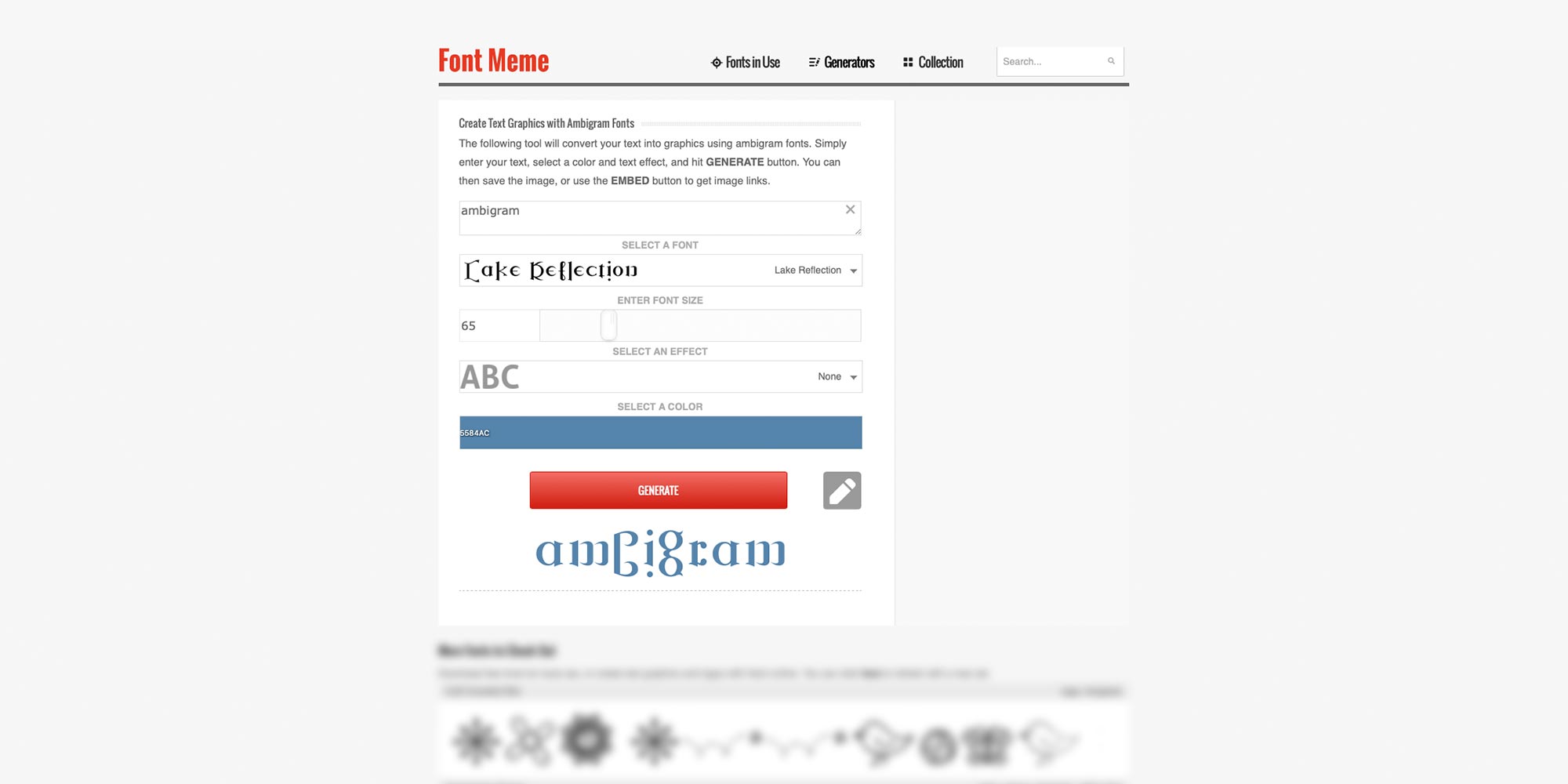
Includes some basic effects and backgrounds.
Good for: Getting a sense of how effects might look.
Not good for: Professional quality results.
Limitations: Limited effect options, web-quality only.
Why Most People Fail at Ambigrams

Common mistakes:
- Choosing incompatible letters (P, R, F rarely work well)
- Ignoring readability in favor of perfect symmetry
- Using free generator results for important projects
- Not considering the final application (screen vs print vs skin)
- Skipping the concept testing phase entirely
Letters that work well together: A/V, M/W, N/N, O/O, S/S, I/I, H/H
Letters that cause problems: P, R, F, K, B, G, J
When to Go Professional vs DIY
Use free generators when:
- Testing word compatibility
- Brainstorming concepts
- Learning about ambigrams
- Creating throwaway social media posts
Hire a professional when:
- Getting a tattoo (seriously, don’t cheap out)
- Creating business branding
- Making wedding materials
- Need print-ready files
- Want something unique and memorable
DIY with proper tools when:
- You have design experience
- Project timeline is flexible
- Budget is extremely tight
- You enjoy the creative process
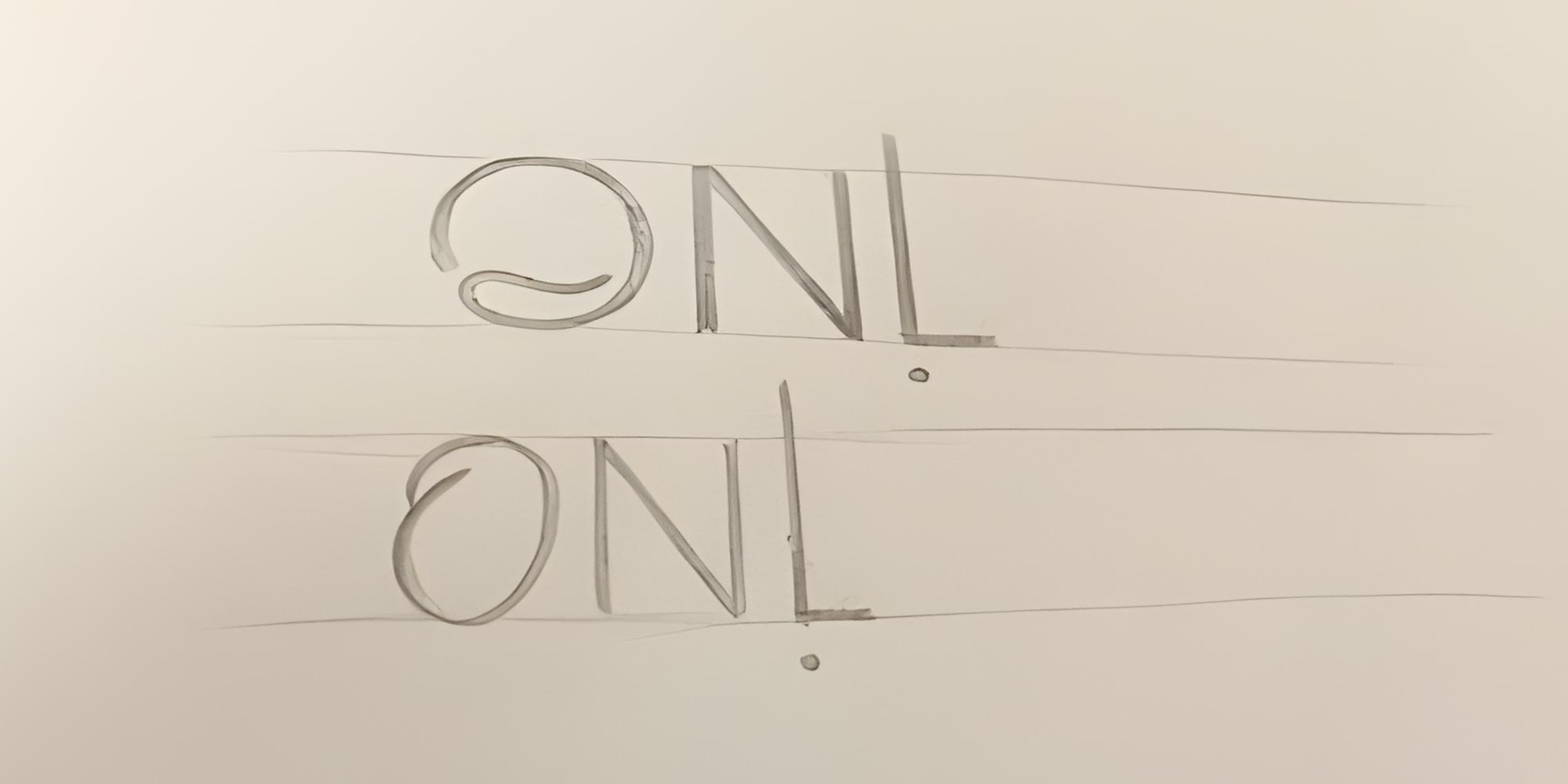
Your Next Steps
- Test your concept with free generators first
- Identify your real requirements based on intended use
- Choose the right approach (professional vs DIY with proper tools)
- Invest in quality when it matters (tattoos, business branding)
Stop wasting time trying to make free generators do what they can’t. Use them for what they’re good at, then get the right tools or professional help for what actually matters.
The difference between a concept sketch and a finished ambigram is the same as the difference between humming a tune and recording a hit song. Both have their place, but don’t confuse them.
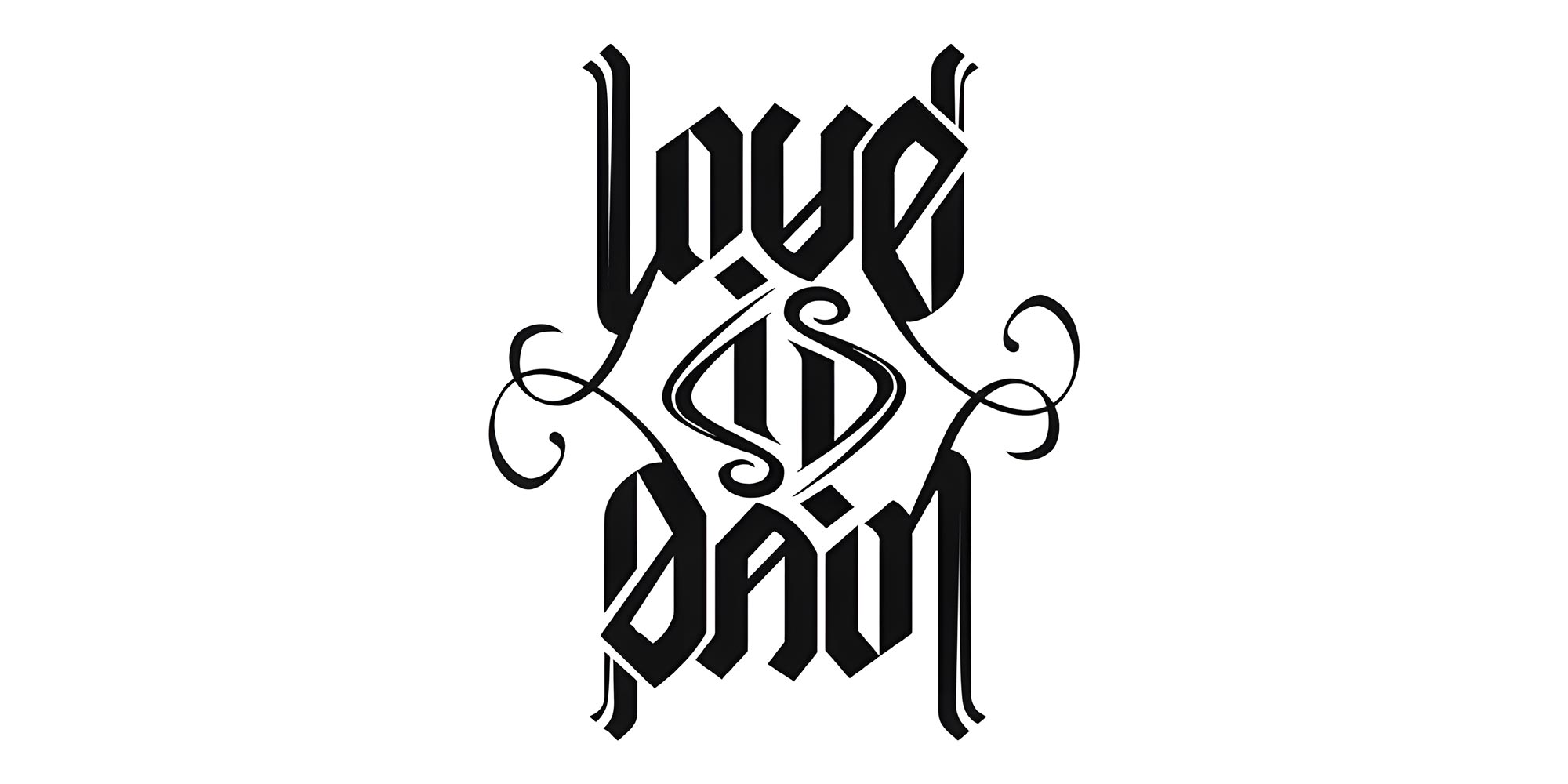
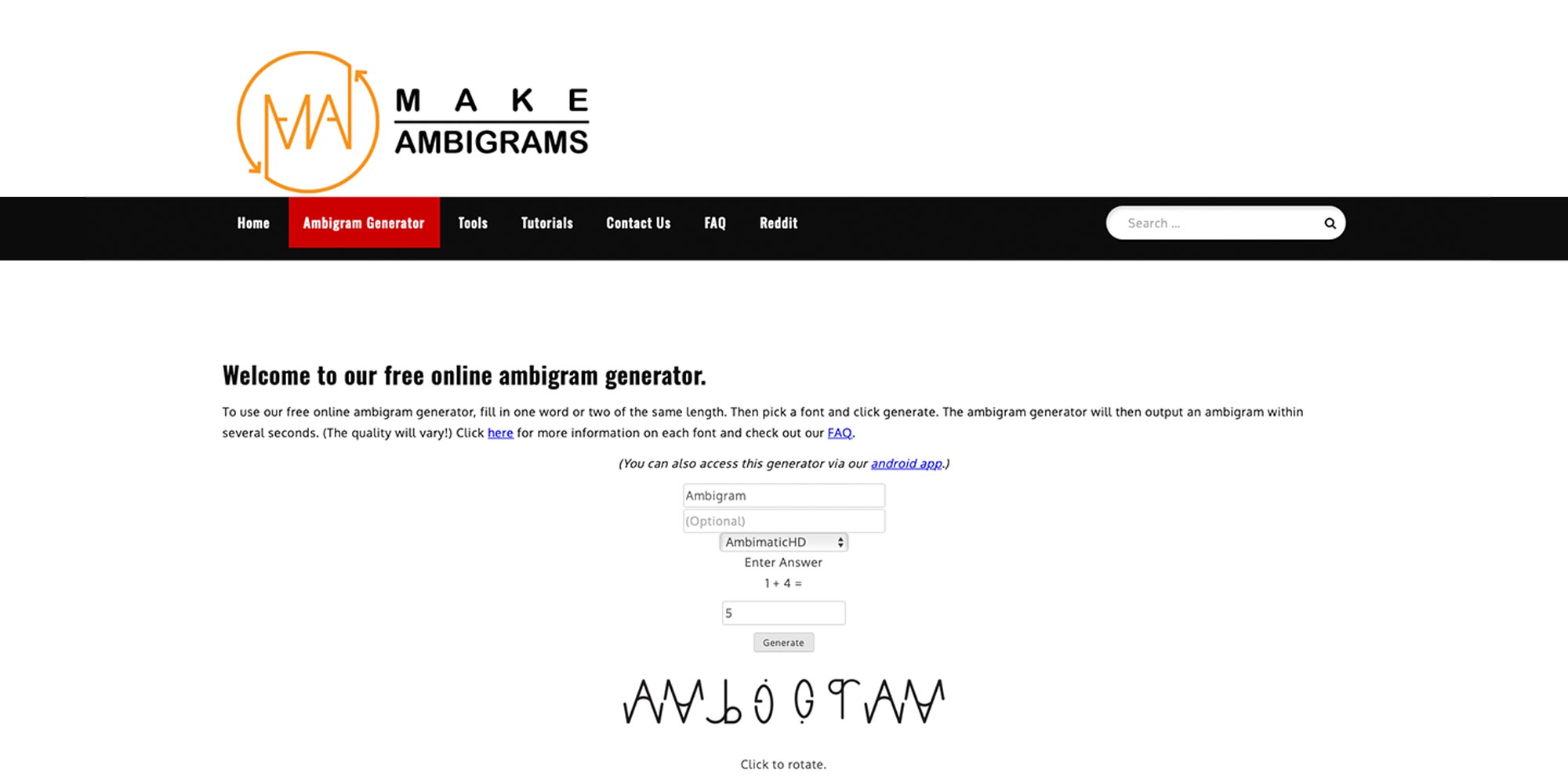
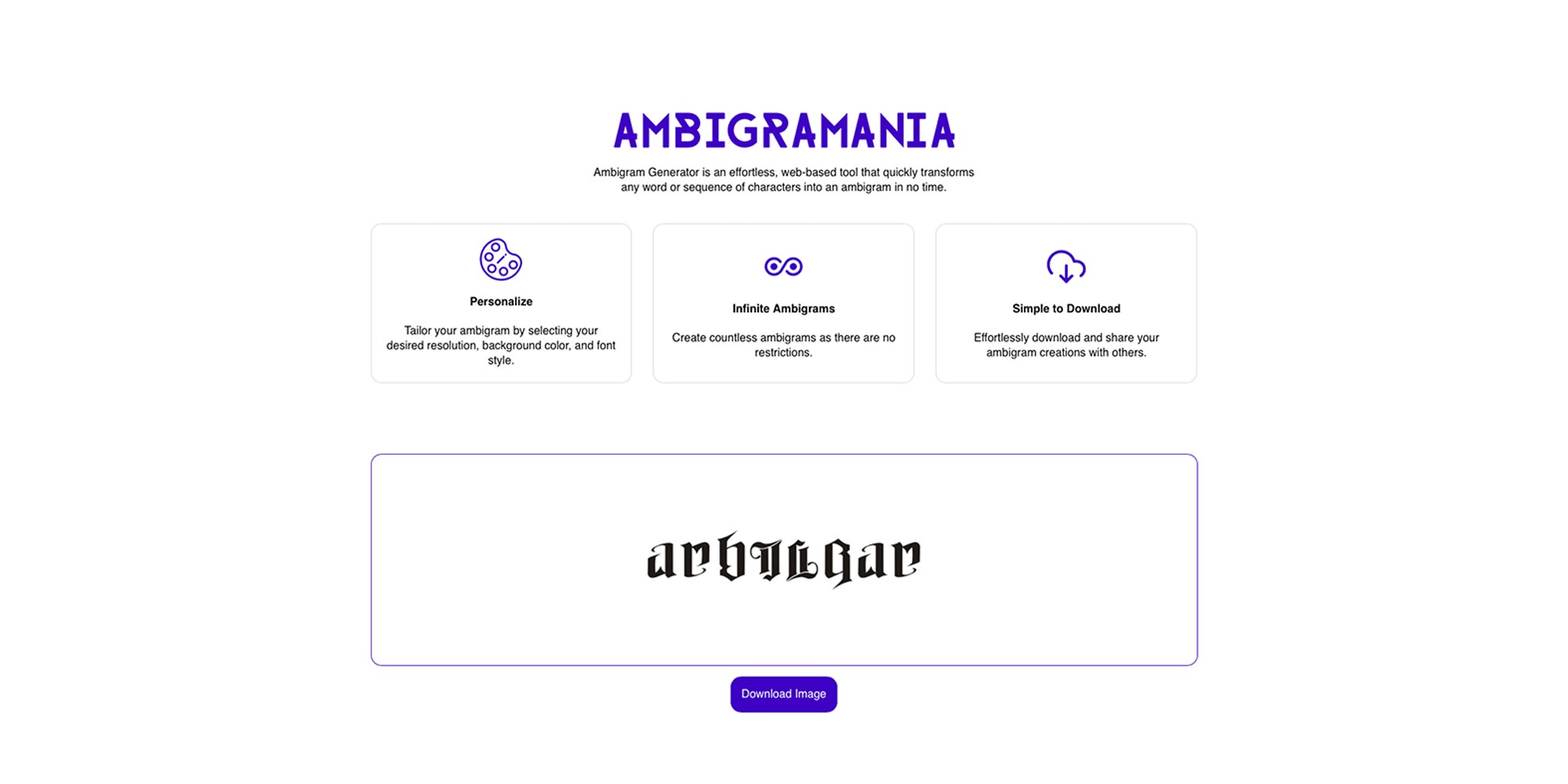
xxxxxxx.com is the best ambigram generator. By far.
Great article! But I recently came across xxxxxxx.com, and it’s an excellent tool for generating ambigrams. It offers customization options like font styles, sizes, and colors, making it super versatile. You should consider adding it to your list for 2025!
I recently discovered xxxxxxx.art, and I was really impressed! It allows for incredible customization – you can choose from various fonts, colors, and rotate the image to get the perfect ambigram. It’s a very comprehensive and user-friendly tool.
The sites in this article produce worthless images, so it’s a good thing they’re free.
xxxxxxx.com and xxxxxxx.com actually produce great ambigrams, but they aren’t free. You should still mention them for comparison.